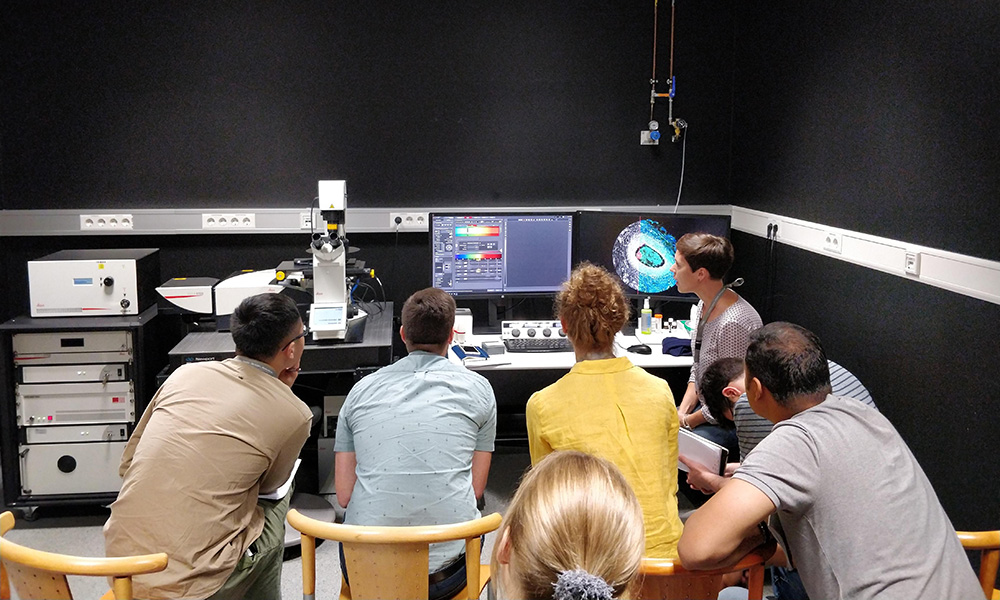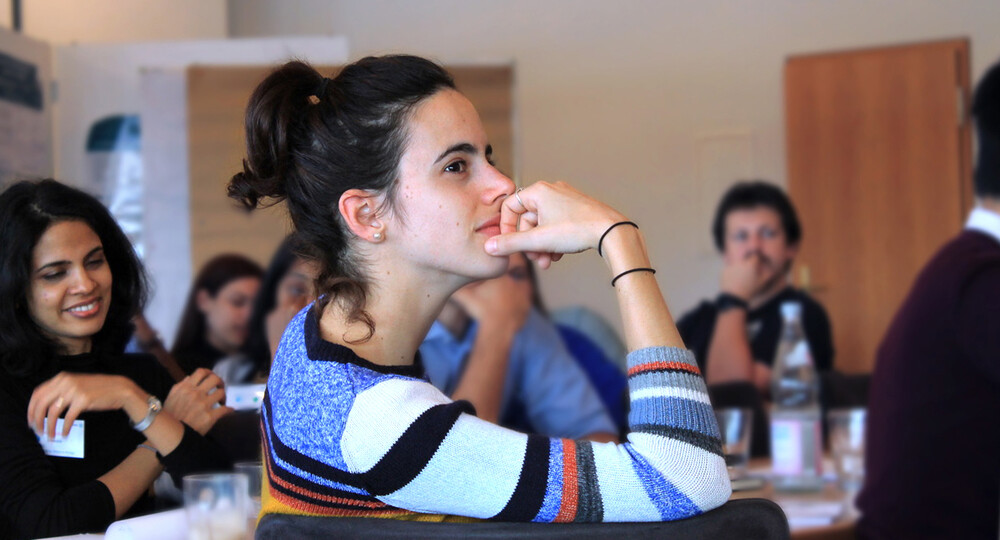 Edit
Edit
Embracing interdisciplinarity in training
EMBL training expands multidisciplinary approaches, welcoming collaboration and encouraging applications from a new range of disciplinary backgrounds.

It is increasingly apparent that 21st century global problems cannot be solved without input and cooperation from scientists with diverse research expertise. This requires interdisciplinary thinking and problem-solving, a concept also central to EMBL’s new programme, ‘Molecules to Ecosystems’.
“Multidisciplinary research is one of the strongest tools we have to solve today’s grand challenges, including climate change,” said Edith Heard, EMBL Director General, in an opinion piece published in the Financial Times in August 2021.
Multidisciplinarity is also factored into EMBL’s state-of-the-art training programmes to encourage PhD and postdoctoral fellows from a wide range of scientific backgrounds. While EMBL’s training programmes have reflected multidisciplinarity in the past, EMBL’s new scientific programme further strengthens the need for additional disciplines
In 2021, the EMBL Interdisciplinary Postdoc (EIPOD) programme continued to enable postdoctoral fellows to work across two or more research groups, with a possibility of collaborating with academic, industry, and clinical partners.
EMBL’s International PhD Programme (EIPP) actively encourages students with backgrounds in chemistry, physics, mathematics, molecular medicine, computer sciences, or engineering to apply. Currently, approximately 16 % of all EIPP fellows have an educational background other than biology.
Additionally, although the pandemic prevented the EMBL Lautenschläger Summer School from taking place, the year included planning for the two-week interdisciplinary programme in 2022, for undergraduates whose studies lie outside of traditional biology.
 Edit
Edit
“Due to their increasing complexity, the scientific questions we face as a society demand increased cooperation among different disciplines. A solid interdisciplinary training is the best way to equip future leaders in academia, industry, policymaking, and beyond with the skills required to tackle those questions.”
– Fulvio Grigolato, Project/Programme manager, EMBL International PhD Programme

